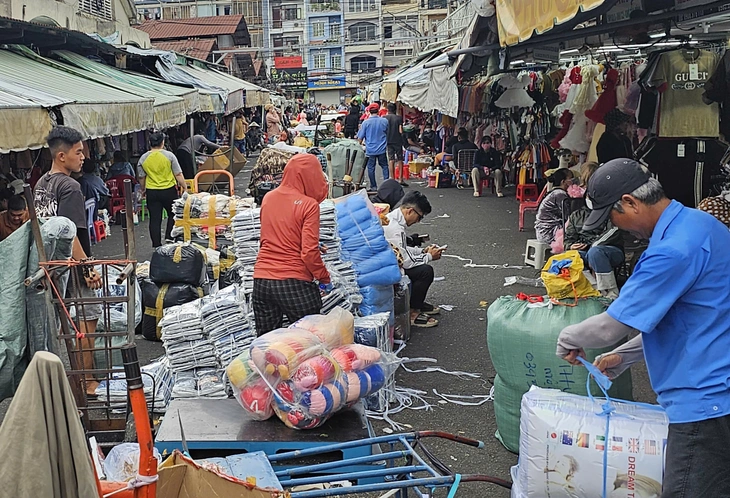
Fashion trading activities at Tan Binh wholesale market (HCMC) - Photo: N.TRI
By early 2026, more than 5 million business households will no longer pay lump-sum tax, but will switch to paying tax by declaration method. With a large number of traders having to change, many opinions say that the tax sector needs to step up support and quickly remove obstacles.
Meanwhile, despite some difficulties, after more than 4 months of implementing the regulation on applying electronic invoices generated from cash registers for business households with revenue of 1 billion VND/year or more, many business households affirmed that they have gradually become familiar with this new regulation and will continue to support it because of the benefits it brings.
Difficult but has advantages
Sharing with Tuoi Tre Online , Mr. Lam Phuong Toan, owner of a flower shop on Duong Quang Ham Street (old Go Vap District), said that the biggest problem when applying electronic invoices generated from this cash register lies in the input invoice stage.
Specifically, most gardeners and flower growers are small businesses, without the habit or conditions to issue invoices. When regulations require full input documents, many people are forced to "buy" invoices from intermediaries to legalize, causing significant additional costs.
"For example, a bouquet of flowers costs 2 dong, but when adding the cost of invoices and documents, the price increases to 3.5-4 dong. This is an imaginary increase, not reflecting the actual value, but the traders still have to bear it," Mr. Toan analyzed.
In addition, according to Mr. Toan, including VAT in the listed price also changes customers' consumption habits. Previously, buyers only asked for an invoice when really needed and were willing to pay an additional 8%. Now, when the price includes VAT, the actual amount of money to create a bouquet is reduced.
"For example, a 500,000 VND bouquet of flowers in the past could have more accessories and more elaborate designs. Now, that 500,000 VND includes tax, the bouquet becomes smaller, and many customers hesitate," Mr. Toan shared the reality.
Not only under pressure from costs, Mr. Dien, an agricultural trader in Ho Chi Minh City, said that technical operations also caused many problems after administrative boundaries were merged.
Specifically, the addresses of many agencies and units change, making it difficult to update information on electronic invoices and customer data. If just one small detail is entered incorrectly, editing the invoice will be very complicated, forcing the seller to ask again for each piece of information, wasting a lot of time.
"Actually, after a few months, the process gets into gear and there are no more surprises, but problems with input invoices and additional costs are inevitable," Mr. Dien assessed.
Meanwhile, Ms. Huynh Nhu Ngoc, owner of Ngoc Nhien flower garden at Ho Thi Ky flower market (old District 10), said that her family started issuing electronic invoices since June following the guidance and training of the old District 10 tax department.
"At first, it was really hard work. In the evening, my husband and I had to sit together to make a list and issue invoices. But gradually we got used to it and didn't need to hire more people," she said.
According to Ms. Ngoc, the biggest difficulty is still the input. Flowers are mainly imported from Da Lat and other provinces, many other small sources, but many small gardeners do not have invoices, forcing traders to make a list. In addition, the new tax calculation method also causes the amount of tax payable to increase many times higher than before.
"If before I only paid about 1 million VND per month, now it has increased to 7-8 million VND. Taxes are higher, profits are reduced due to economic difficulties, but in return I keep customers and expand the market," Ms. Ngoc calculated.
Traders want more training with tax declaration
According to the roadmap, from the beginning of 2026, More than 5 million business households will no longer pay taxes by lump sum method, but will switch to paying taxes by declaration. The mandatory time is not far away, causing many small retail stores to be worried, especially older traders.
Ms. Ngo Thi Bich Chung, a small grocery store owner in an alley on Le Van Sy Street (old District 3), said she had heard that from next year, she would have to use machines and keep books to declare taxes, so she was worried. According to Ms. Bich, the tax industry should have a training course to teach basic skills to older small businesses who are not familiar with technology.
Speaking with Tuoi Tre Online , a representative of the management board of a traditional market in Cho Lon ward, Ho Chi Minh City, said that because the market sells construction materials, it often requires invoices and documents.
"Previously, when applying lump-sum tax, business households almost did not pay much attention to input and output invoices and documents, but now it is completely different. Not to mention, tax officers in charge of wards with a very large number of traders will not be able to provide continuous support, so there needs to be a solution for this training soon."
Many ward leaders believe that the tax sector needs to have more activities, even hand-holding and guiding small traders. This, if done well and early, will help traders feel more secure and proactive in the transition process.
"There are only a few months left before the new tax calculation is officially applied to more than 5 million business households. There are still problems. If we do not step up support and resolve them, it will be very difficult to apply them synchronously and effectively," a ward leader assessed.
Hundreds of individuals and organizations registered to participate in the workshop.
By the afternoon of October 7, the organizing committee had recorded more than 300 individuals representing business households and enterprises in Ho Chi Minh City and other provinces and cities registering to participate in the workshop "The tax is about to be abolished, what do business households need to prepare?", taking place on October 8, at Hall A, 2nd floor, Saigon University (Ho Chi Minh City).
Participants showed their interest by registering many questions, noting their wishes that need to be answered in the workshop related to online business activities, procedures related to using self-declared tax instead of lump-sum tax, software, invoices, documents, inventory, output with direct connection to tax authorities, etc.
Even Mr. Tran Van Anh, representing a textile enterprise in Khanh Hoa , also registered to attend the workshop with the desire to understand more about the revenue regulations to apply tax policies and how to calculate tax on sales revenue...
Representatives of many State management agencies assessed that the conference taking place at this time with diverse content is very necessary for 5 million business households. At the same time, they hope that the organizing committee will support the organization of more seminars on finance, loans, digital transformation, instructions on registration procedures, declaration, electronic tax payment...
Source: https://tuoitre.vn/hon-300-ho-kinh-doanh-dang-ky-du-hoi-thao-mong-duoc-giai-dap-khi-sap-bo-thue-khoan-20251007170854973.htm



![[Photo] Prime Minister Pham Minh Chinh chairs the 16th meeting of the National Steering Committee on combating illegal fishing.](https://vphoto.vietnam.vn/thumb/1200x675/vietnam/resource/IMAGE/2025/10/07/1759848378556_dsc-9253-jpg.webp)




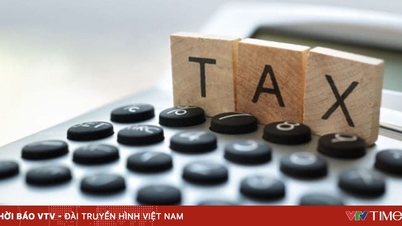

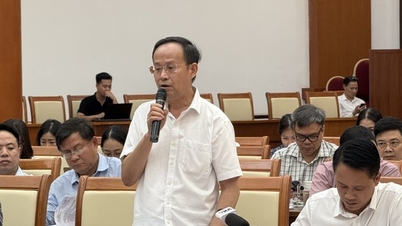


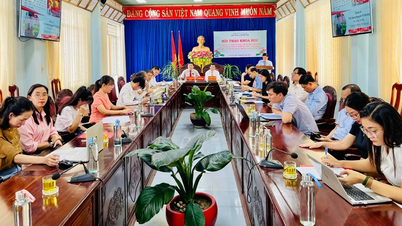



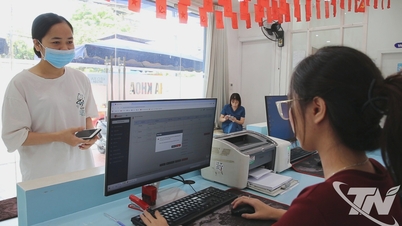


















![[Photo] Super harvest moon shines brightly on Mid-Autumn Festival night around the world](https://vphoto.vietnam.vn/thumb/1200x675/vietnam/resource/IMAGE/2025/10/07/1759816565798_1759814567021-jpg.webp)
























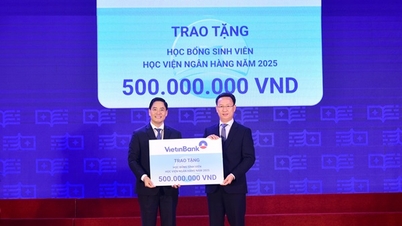












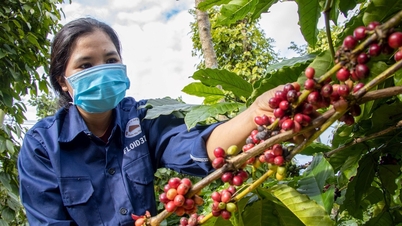





























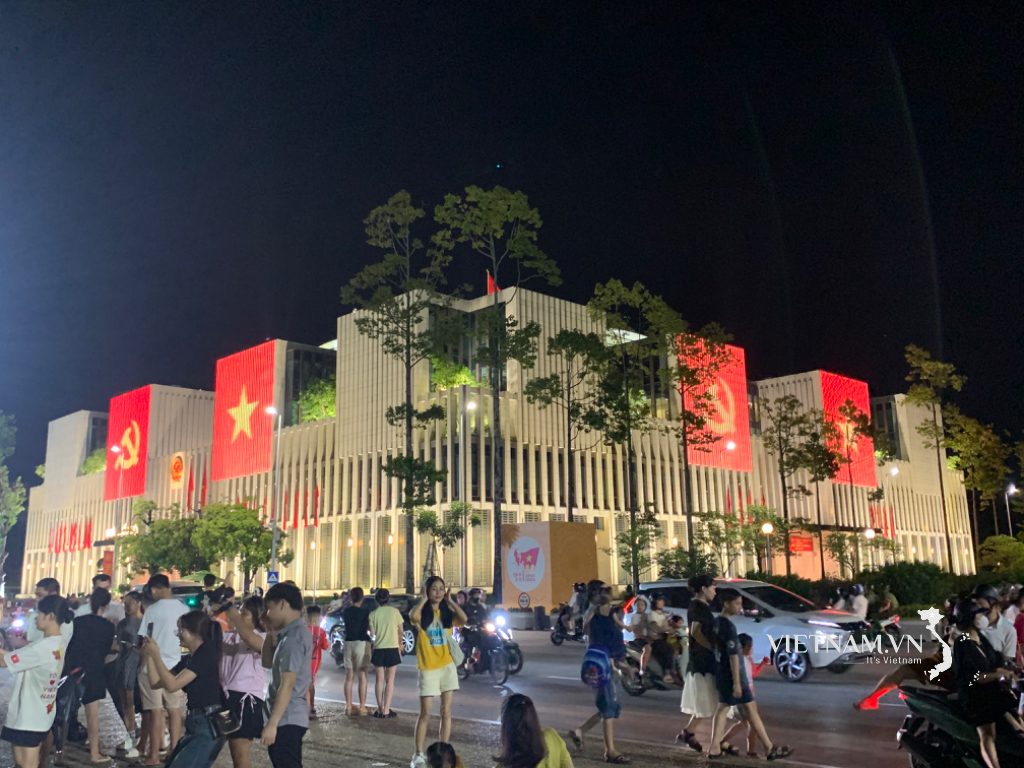
Comment (0)